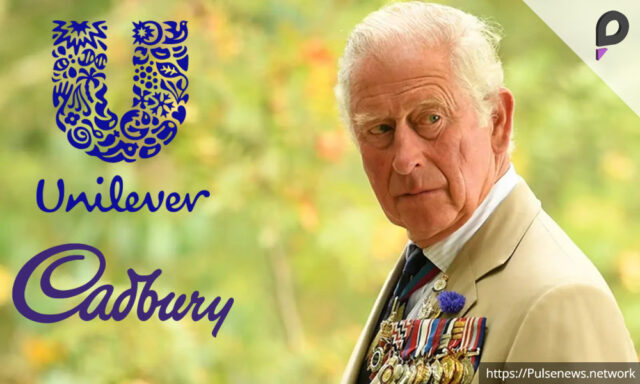LONDON: In a significant move, King Charles III has ended royal warrants for Cadbury and Unilever, impacting their long-standing royal association. The announcement, made late last week, excludes the companies from the royal supplier list, barring them from using the Royal Arms on their products.
Cadbury, known for its famous chocolates, and Unilever, owning brands like Marmite and Ben & Jerry’s, had previously held royal warrants, some dating back to the reign of Queen Victoria. No official explanation was provided for the discontinuation, aligning with royal protocol.
Unilever and Cadbury’s parent company Mondelez have faced criticism for their business dealings in Russia since the invasion of Ukraine in 2022. Campaigners urged King Charles in an open letter to revoke their warrants, though there is no confirmation this influenced the decision.
The Prestigious Tradition of Royal Warrants: A Symbol of Excellence
Royal warrants are granted to companies supplying goods or services to the British royal household, symbolizing prestige and royal endorsement. This tradition dates back to the 15th century, and over 500 brands currently hold such warrants. They are reviewed and renewed every five years based on product quality and supply reliability.
Mondelez expressed disappointment in a statement, saying: “We respect the decision and are proud to have previously held a warrant.” Similarly, Unilever noted its “long history supplying the royal household” and its pride in previous warrants awarded by Queen Elizabeth II.
Amid the changes, King Charles renewed warrants for major brands like Heinz, Nestlé, and John Lewis. Queen Camilla appointed seven new warrant holders, including Jo Hansford and Philip Treacy, signifying continued recognition of other prestigious brands.
Activist group B4Ukraine had earlier advocated for dropping companies maintaining Russian operations from the royal warrant list. The group argued that such businesses prolong the conflict in Ukraine.
Unilever sold its Russian subsidiary to Arnest Group, marking its exit from the country. Meanwhile, Mondelez operates three factories in Russia, maintaining local production and facing criticism for its ongoing presence.
The royal family’s website states that warrants are not renewed if products fail to meet quality or supply standards. The decision highlights King Charles’ approach to royal endorsements in the modern era.











